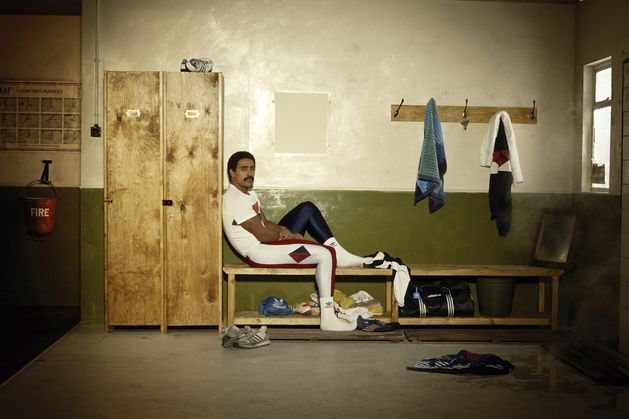Daley: Olympic Superstar review: Thompson, Britain's greatest ...

The new documentary refuses to gloss over or skate around his less than admirable moments.
Daley Thompson is, without question, the greatest British athlete there has ever been — and in the hardest Olympic category of all, the decathlon.
His record is breathtaking: two Olympic gold medals (in 1980 and 1984), four world records, three Commonwealth titles, and wins in the World and European Championships.
He was unbeaten for nine years. Yet, he remains weirdly underappreciated in Britain. If he’d been born in America and achieved what he did, he’d have his head on a stamp.
In contrast, the British, offended by some of Thompson’s ill-advised remarks as a cocky, somewhat guileless young man and, you suspect, disdainful of his unshakeable confidence, justified belief in his own greatness, hunger to be the best in the world and refusal to exhibit fake humility, often seemed to want his head on a spike.
You’ll rarely, if ever, find Thompson’s name showing up on a list of the 10 best British sportspeople, which is ludicrous. It’s almost as if he’s been forgotten.
Vadim Jean’s excellent feature-length documentary Daley: Olympic Superstar (Tuesday 16 July, 9pm, BBC Two) does a magnificent, long-overdue job of honouring Thompson’s brilliance.
The director and Thompson have been friends for years but the film is no hagiography. It celebrates Thompson’s achievements on the track with glorious archive footage and an impressive line-up of former athletes, coaches, sports writers, family members and childhood friends, yet it refuses to gloss over or skate around his less than admirable moments.
When Thompson was asked in the 1980s what Princess Anne had said to him when they met, he replied: “She said that I was a damn good-looking guy.” So far, so harmless. But there was outrage when he joked that she would be the mother of his children.
“It was hard sometimes to watch him say and do things,” says fellow athlete Steve Cram.
You have to think there was an undercurrent of racism in the savaging Thompson received from the tabloids.
Much harder to excuse was his stunt at the Los Angeles Olympics in 1984, when he donned a T-shirt bearing the words: “Is the world’s second best athlete gay?” It was a reference to American athlete Carl Lewis, who’d been subjected to rumours about his sexuality.
Daley Thompson was widely criticised for wearing a T-shirt joking about his opponent's sexuality. Photo: Monte Fresco/Getty Images
At 26, says Thompson, he didn’t realise how offensive it was. At 65, he understands and says he would apologise to Lewis if he could.
Sebastian Coe is less forgiving, though: “It’s still a painful T-shirt. For Daley, it’s not enough to win the competition, you also actually have to destroy your opponent.”
Thompson proves to be an engaging guide, more open-hearted and willing to show vulnerability now than when he was a young man, through what has to be considered the definitive film about his life and career.
He didn’t have the easiest of starts. Born to a black father and a white mother, Lydia, in a country rife with racism, he grew up in a council flat in Notting Hill. They relied on food and clothes banks.
Caitlyn (formerly Bruce) Jenner recalls the young Thompson as a persistent pest who kept asking questions
His father spent much of his time in prison. When he was seven, Thompson was packed off to a boarding school paid for by the local authority. One day, he was called to the headmaster’s office to be told his father had been shot dead. Thompson says he felt no emotion.
He admits that when he became a father himself, his total commitment to becoming the best decathlete in the world meant he was rarely at home when the kids (he has five sons from two marriages, including Elliot, who was British decathlon champion in 2022) were growing up.
Daley Thompson during the Olympic men's decathlon 400 metres competition in 1984. Photo: Ken Regan/Getty Images
Thompson’s all-consuming drive to be the best in the world seems to stem from having an absent father and a mother who never watched him compete and never encouraged his dreams. It bred in him a reluctance to depend on others.
His first Olympics were in Montreal in 1976. He didn’t make much of an impact, apart from on Caitlyn (formerly Bruce) Jenner, who recalls the young Thompson as a persistent pest who kept asking questions.
Whatever his past transgressions, many of which are mild compared to the antics of some of today’s sportsmen, it’s to be hoped the documentary will gain him renewed recognition in a country that seems to like its sporting heroes to be more Eddie the Eagle and less Daley Thompson.
Daley airs on BBC Two on Tuesday, July 16 at 9pm and is repeated on BBC Two, Saturday, July 20 at 00:05











































